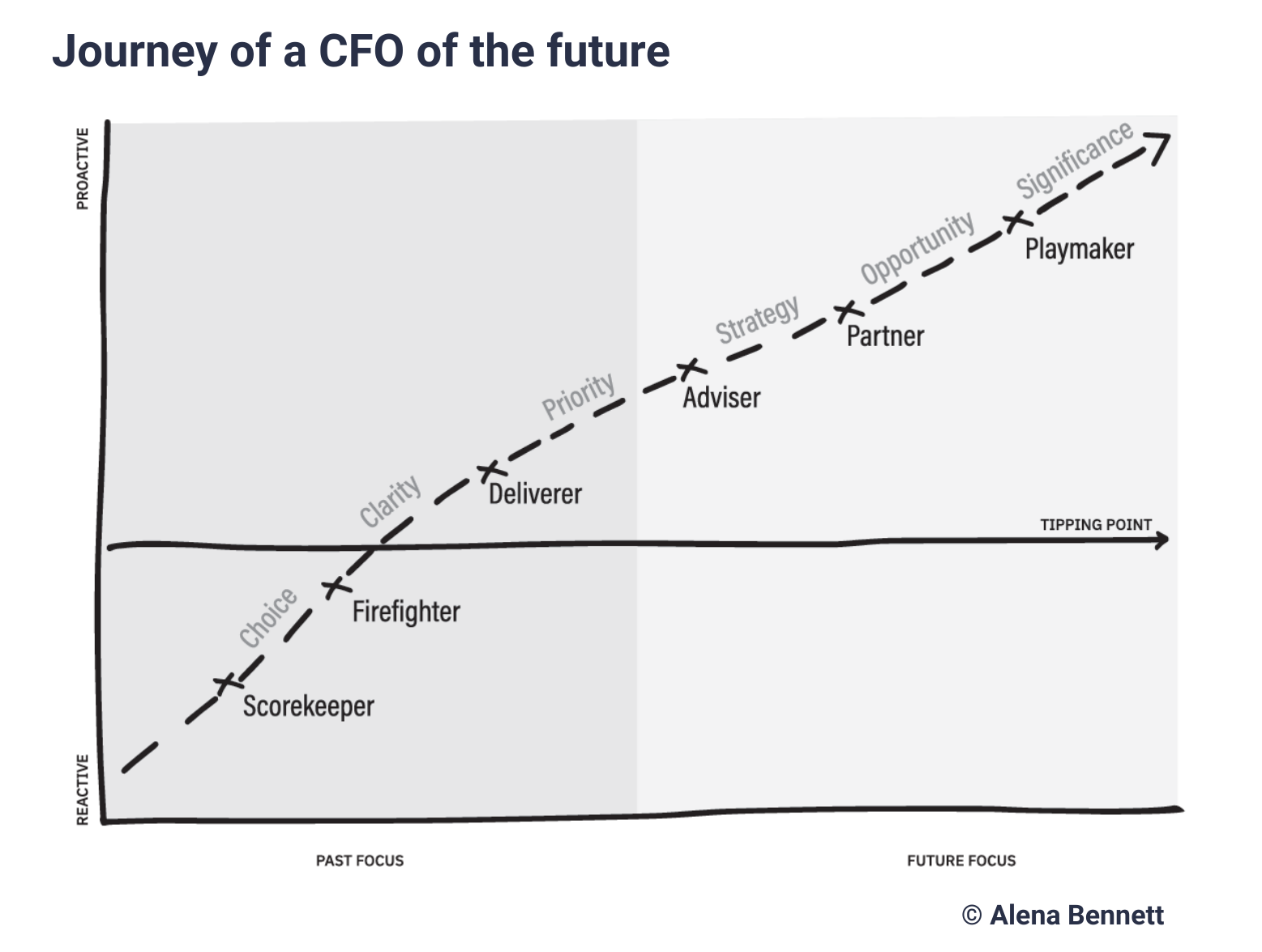11/08/2024 15:30:00 +0800
One of my CFO Boardroom members recently came to me feeling stuck in a cycle of constant problem-solving. She explained that she was spending the majority of her time putting out fires - resolving operational crises, answering last-minute requests, and troubleshooting financial issues that weren't aligned with her strategic goals.
She was feeling trapped in a reactive mode, which was taking her attention away from long-term value creation and future planning.
Through our work together, she started to implement clear boundaries and began to delegate the high urgency, low impact tasks to her team. By doing so, she was able to reclaim her time and energy for more strategic initiatives, gradually shifting her role from that of a fixer to that of a proactive leader.
In this blog, I'll share how CFOs can break free from the firefighter role and create space so that they can evolve into the next version of themselves.
1. The Problem With Being a Firefighter
First, it's important that CFOs recognise the cost of being stuck in reactive mode. Constant firefighting keeps CFOs in the weeds, preventing them from driving innovation and leading long-term planning. CFOs are trained to tackle problems head-on, but the more they take on as "fixers," the more they undermine their ability to influence the strategic direction of the company.
This doesn't mean abandoning problem-solving altogether. Instead, CFOs want to gradually shift their focus and energy away from the urgent to the important.
Beyond Firefighter: what is the upside to you and your organisation?
Breaking free from the firefighter role starts with the CFO delegating and setting clear boundaries for what they will and won't take on. They need to empower their team to handle the day-to-day issues, allowing the CFO to focus on the larger, strategic tasks that align with their organisation's goals.
Here's how to start:
• Delegate Crisis Management: If the CFO finds themselves constantly pulled into minor crises, it's time for them to build a team that can manage those situations without them. They need to train and trust their team to handle these issues independently.
• Set Boundaries: CFOs need to learn to say no to tasks that don't align with their strategic objectives. When a problem arises, they need to ask themselves: Is this something only I can fix, or can someone else on my team handle this?
• Shift The Focus to Strategy: Once they've delegated effectively, the CFO should turn their attention to higher-level goals. To dedicate time to thinking about the future of the company - how financial strategy aligns with overall business objectives, where growth opportunities lie, and how they can be more proactive in shaping the company's trajectory.
By empowering their finance team and setting boundaries, CFOs can create the space they need to focus on long-term impact rather than short-term firefighting.
3. Reframe The Role: From Fixer to Strategic Leader
It's also essential that CFOs reframe how others see their role. If colleagues or leadership are used to them being the firefighter, they need to reposition themselves as a proactive strategist rather than just a reactive problem-solver.
Here's how to do this:
• Foster Strategic Partnerships: CFOs should position themselves as a key player in broader business conversations. They need to get involved in discussions beyond finance to showcase how their financial insights can drive company-wide strategy.
• Invest in Developing The Finance Team: Building a strong finance team that can handle day-to-day tasks without the CFOs constant involvement is key. A well-developed team will free the CFO up to focus on high-level strategic planning.
• Align Goals with Business Objectives: CFOs should ensure that their goals are directly tied to the company's long-term vision and collaborate cross functionally to show how finance can support and advance the business.
• Seek Resources for Growth: Consider executive coaching or mentorship programs that can help CFOs to level up. My 'CFO Boardroom' program is designed to help CFOs do just that.
• Be Proactive, Not Reactive: To break the firefighting cycle, CFOs need to anticipate problems before they arise. Developing preventative measures for recurring issues and implementing systems will help CFOs to solve problems at the root, not just on the surface.
• Maintain Open Communication: Regularly engaging with the broader executive team to voice concerns and share insights will help the CFO ensure that their strategic input is valued and integrated into company decisions.
How Would Shifting Focus to Strategy Benefit the Business?
When CFOs step away from constant crisis management and move toward a more strategic leadership role, the entire organisation benefits.
I'd love to hear your thoughts...
If your CFO is having a hard time stepping out of the role of fixer and into the role of strategic leader, you need to sign them up to the CFO Boardroom.
The CFO Boardroom is my signature program. In it, CFOs join a confidential community of other CFO's ready to play bigger, increase their impact and elevate the office of the CFO in the next 12 months. Our December intake is now open.


